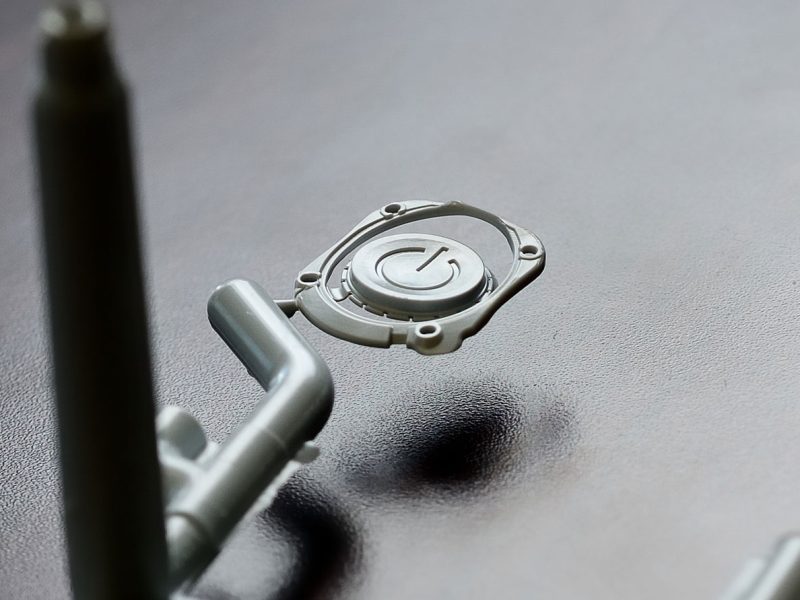Plastic prototypes play a role in the manufacturing of medical devices, serving as a crucial testing tool for size, functionality, design, and production capacity.
At Seisa Medical, we specialize in creating high-quality plastic prototypes to develop optimal designs for various treatments and medical procedures. We ensure the best possible outcome with meticulous oversight throughout the design and production process.
Using efficient plastic prototypes, we identify and address flaws before production, resulting in the ideal design based on our client’s ideas and concepts.
Plastic Prototypes for Medical Devices
Conceptual design
This stage transforms the initial idea into an ideal prototype using 2D sketches and 3D models, and it serves as the foundation for the subsequent development steps.Detailed design
Here, all the prototype manufacturing specifications are defined. This includes determining dimensions, tolerances, geometry, and functional characteristics, ensuring the prototype meets the intended requirements.Material selection
Careful consideration is given to selecting suitable materials based on factors like biocompatibility, chemical resistance, sterilization requirements, and mechanical properties necessary for the device.Prototyping
Various techniques, such as advanced 3D printing, precise CNC machining, or plastic injection molding, are employed based on the complexity of the design and the functional requirements of the medical device.Testing and refinement
Rigorous testing is conducted to verify the prototype’s operation, compliance with functional requirements, and compatibility with other medical equipment. Any necessary improvements or adjustments are made at this stage.Advantages of Plastic Prototyping Services
Our focus lies in enhancing the quality of supplies for highly complex medical applications. We understand the criticality of our products in saving lives, and we approach this responsibility with utmost seriousness. Our primary goal is to create functional tools that effectively fulfill this purpose.
To achieve this, we leverage cutting-edge technology and expert insights in our plastic prototyping services to deliver exceptional advantages in the final product. Here are the key differentiating advantages of our services:
Accelerated time to market
Through our streamlined process and expert team, we expedite the development of medical devices. With our expertise in plastic prototyping, we enable an efficient progression from ideation to manufacturing, significantly reducing overall development time and providing a competitive edge in the market.
Improved profitability
We identify and rectify design flaws early by utilizing plastic prototyping, effectively mitigating the need for costly production tooling. This approach optimizes the allocation of resources, ensuring a more cost-effective and profitable outcome.
Iterative improvements
Our iterative approach involves refining and optimizing designs through multiple iterations. By incorporating feedback and conducting rigorous testing, we continuously enhance the medical device’s functionality, efficiency, and user experience. This iterative process results in a more robust and competitive final product.
Risk reduction
We prioritize mitigating the risks associated with medical device development. Our plastic prototyping services identify and resolve potential issues before mass production, ensuring compliance with industry and regulatory standards. This proactive approach minimizes the likelihood of setbacks and provides the final device meets the highest quality and safety standards.
Experience and Expertise in Plastic Prototyping for the Medical Device Industry
Seisa Medical possesses extensive experience and in-depth expertise in plastic prototyping for medical devices. With over 35 years of experience in manufacturing medical components, we have established ourselves as a leading company in the field of plastic prototypes.
We recognize the intricacies involved in developing medical devices and are well-versed in the regulatory and quality standards that govern the industry. Our scope of expertise encompasses various applications, including surgical instruments, diagnostic equipment, implants, and medical assistive devices.
Furthermore, we possess comprehensive knowledge of the distinct properties of different materials and their applications and limitations in medicine. This enables us to provide expert guidance in selecting the most appropriate materials for each project, considering biocompatibility and the required mechanical properties.
By leveraging our experience, industry knowledge, and material expertise, we ensure that our clients receive top-notch plastic prototypes that meet the highest quality, functionality, and regulatory compliance standards.
Everyday Use of Plastic Prototypes
In the highly delicate and complex field of medical devices, the design and testing of plastic prototypes play a vital role. The following are typical examples of medical devices where plastic prototyping is crucial:
Surgical Instruments
This category includes forceps, scissors, retractors, and suturing devices. Designers thoroughly assess the mechanisms for ergonomic design, ease of use, and overall effectiveness before proceeding to mass production.
Delivery Systems
Syringes, infusion devices, and inhalation systems fall into this category. Prototyping these devices allows for evaluating dosing accuracy, ease of use, and drug compatibility, ultimately leading to more efficient production.
Diagnostic Tools
Devices like glucose meters, digital thermometers, and monitoring devices greatly benefit from plastic prototyping. It helps verify functionality and accuracy, ensuring reliable and precise measurements.
Implants
Joint replacements, vascular stent delivery systems, and bone fixation devices are among the implants that require plastic prototypes. Through prototyping, designers can evaluate these devices’ shape, fit, and biocompatibility before final fabrication, ensuring optimal performance and patient safety.
Given the crucial role of these medical devices in treating various health conditions, it is essential to evaluate and test each piece before manufacturing thoroughly. This meticulous process directly impacts the quality of life for patients and underscores the significance of precision and reliability in medicine.
Medical Device Plastic Prototyping Kits
Seisa Medical offers plastic prototypes manufactured with state-of-the-art equipment. Our advanced technology guarantees a safe and efficient process for each medical project.
We employ 3D printers to fabricate precise and top-quality plastic prototypes. Furthermore, our team utilizes CAD/CAM design software to develop and enhance prototype designs effectively.
Additionally, we harness the power of CNC (Computer Numerical Control) machines, enabling the precise machining of plastic components from solid blocks or molds. These machines excel in achieving high accuracy in milling, turning, and drilling operations.
